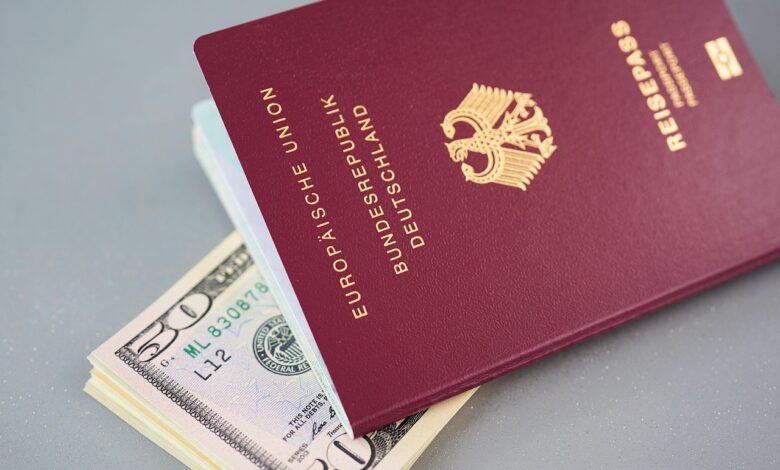How to Apply for Greek Citizenship: A Comprehensive Guide

Obtaining Greek citizenship can be a life-changing decision, offering benefits such as the right to live, work, and study in Greece and other European Union (EU) countries. Greece also allows dual or multiple citizenships, making it an attractive option for many. However, the process of applying for Greek citizenship can be complex and varies depending on your eligibility criteria. Below is a step-by-step guide to help you navigate the application process.
1. Determine Your Eligibility for Greek Citizenship
Greek citizenship can be acquired through several pathways. Identify which category applies to you:
A. By Descent (Jus Sanguinis):
- If one or both of your parents are Greek citizens, you may be eligible for citizenship by descent.
- This applies even if you were born outside Greece, provided your Greek parent(s) registered your birth with the Greek authorities.
B. By Marriage:
- Foreigners married to Greek citizens can apply for citizenship after living in Greece for at least three years and proving integration into Greek society.
C. By Naturalization:
- Non-Greeks who have legally resided in Greece for a significant period (typically 7-12 years) may apply for naturalization.
- You must demonstrate proficiency in the Greek language, knowledge of Greek culture, and financial stability.
D. Through Investment (Golden Visa Program):
- Non-EU citizens who invest at least €250,000 in Greek real estate can obtain residency permits, which may eventually lead to citizenship after meeting additional requirements.
E. For Descendants of Refugees:
- Individuals whose ancestors fled Greece during historical conflicts (e.g., the Greco-Turkish War) may qualify for citizenship under special provisions.
F. By Adoption or Special Circumstances:
- Children adopted by Greek citizens or individuals recognized as stateless may also be eligible.
2. Gather Required Documentation
The documents you’ll need depend on your pathway to citizenship. Commonly required documents include:
- Proof of Identity : Passport or national ID card.
- Birth Certificate : Certified copy with an apostille or legalization.
- Marriage Certificate (if applicable): For those applying through marriage.
- Residency Permits : Proof of legal residence in Greece for the required duration.
- Language Proficiency : Evidence of Greek language skills (e.g., certificates from recognized institutions).
- Financial Records : Bank statements, tax returns, or employment contracts to prove financial stability.
- Criminal Record Check : Clean criminal record from your home country and Greece.
All foreign documents must be translated into Greek by a certified translator and authenticated (apostilled or legalized).
3. Register with Local Authorities
If you’re applying for citizenship by descent or naturalization, you’ll need to register with the appropriate Greek authorities:
- Citizenship by Descent :
- Visit the nearest Greek consulate or embassy in your home country to initiate the process.
- Provide your birth certificate, parents’ Greek citizenship documents, and any other relevant paperwork.
- Naturalization :
- Register with the local municipality (Δήμος) where you reside in Greece.
- Obtain a tax identification number (AFM – Αριθμός Φορολογικού Μητρώου).
4. Take the Greek Language and Culture Test
For naturalization applicants, passing a Greek language and culture test is mandatory. The exam assesses:
- Language Skills : Reading, writing, speaking, and comprehension in Greek (typically at a B1 level).
- Cultural Knowledge : Understanding of Greek history, traditions, and societal norms.
Preparation courses are available through private institutions or community centers.
5. Submit Your Application
Once you’ve gathered all necessary documents and met the prerequisites, submit your citizenship application:
- Where to Apply :
- For descendants of Greek citizens: Apply at the Greek consulate or embassy in your home country.
- For naturalization: Submit your application to the Decentralized Administration office in Greece.
- Application Fee : Pay the required fee, which varies depending on the type of application.
6. Attend an Interview (If Required)
Some applicants may be called for an interview to verify their eligibility and assess their integration into Greek society. Be prepared to discuss your reasons for seeking citizenship, your ties to Greece, and your future plans.
7. Wait for Processing
The processing time for Greek citizenship applications can vary significantly:
- By Descent : Typically takes 1-2 years, depending on the complexity of the case.
- By Naturalization : May take 2-3 years due to background checks and bureaucratic procedures.
Stay in touch with the relevant authorities to track the status of your application.
8. Take the Oath of Allegiance
Once your application is approved, you’ll be invited to take the oath of allegiance to Greece. This ceremony is usually held at a municipal office or courthouse. After taking the oath, you’ll officially become a Greek citizen.
9. Obtain Your Greek Passport and ID Card
As a new Greek citizen, you can apply for:
- Greek Passport : Visit the local passport office and provide your citizenship certificate, photos, and payment.
- Greek National ID Card : Apply at the municipal authority (Δήμος) for your ID card, which serves as proof of identity within Greece and the EU.
10. Understand Your Rights and Responsibilities
As a Greek citizen, you’ll enjoy numerous rights, including:
- Freedom of movement within the EU and Schengen Area.
- Access to education, healthcare, and social services in Greece and other EU countries.
- The ability to vote and run for public office in Greece.
However, you’ll also have responsibilities, such as paying taxes and adhering to Greek laws.
Additional Tips for Success
- Hire a Lawyer : Consider hiring a Greek immigration lawyer to assist with complex cases, especially for citizenship by descent.
- Join Expat Communities : Connect with others who have gone through the process for advice and support.
- Be Patient : The process can be lengthy, so stay organized and persistent.



